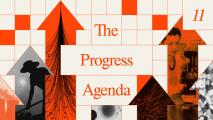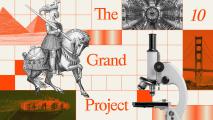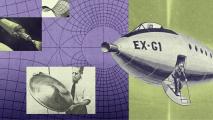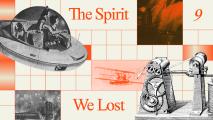Humans have a lot of tools for measuring time — from sundials and pendulums to hourglasses and pocket watches — but the most accurate timepiece of all is an atomic clock.
The best atomic clock is so precise, if it had started measuring time at the dawn of the universe, it would only be off by about half a second today — your standard wrist watch loses or gains that much in about 15 years.
Now, researchers at MIT have developed an atomic clock that would only be off by one-tenth of a second if it had been used since the Big Bang — that may not sound like a huge improvement, but they think it could help solve some of science’s biggest mysteries.
What Is an Atomic Clock?
The key to measuring time is counting something that happens at reliable intervals. Our ancestors relied on astronomical objects for this. Earth completes a rotation in about 24 hours — that’s a day. The moon completes a cycle in roughly 30 days — that’ll be a month. Earth orbits the sun about every 365 days — there’s a year.
About 70 years ago, scientists found something far more precise to measure: the vibrations of energized atoms.
They discovered that using a laser to energize cesium atoms caused the element’s single electron to bounce between two states at incredibly reliable intervals. Today, the official definition of a second is 9,192,631,770 of those back-and-forth cycles, or oscillations.
If scientists could measure the oscillations of just one energized cesium atom, they’d be able to keep perfect time, but they can’t due to a weird phenomenon called the standard quantum limit.
Instead, they have to measure thousands of atoms at once and then average out the results for atomic clocks, which leads to a just slightly imprecise second.
Now, MIT researchers have found a way to create a more precise atomic clock by exploiting another weird quantum phenomenon: entanglement.
Quantum Entanglement FTW
When atoms are “entangled,” they share a strange bond — if something happens to one particle, it affects the other even if they’re far apart from one another.
Einstein described quantum entanglement as “spooky action at a distance,” and it really doesn’t make any sense if viewed through the lens of classical physics — but such is the quantum world.
For their new atomic clock, the MIT researchers used lasers to energize, trap, and measure the oscillations of a few hundred entangled atoms of the element ytterbium.
MIT’s atomic clock could help scientists study dark matter, gravitational waves, and more.
They found that their atomic clock was able to achieve a target level of precision four times faster than today’s atomic clocks.
Energized ytterbium also oscillates 100,000 times more per second than energized cesium, and that will allow scientists to record even smaller units of time — like recording in centimeters instead of kilometers.
Ultimately, the MIT researchers believe their ultra-precise atomic clock could help scientists study dark matter, gravitational waves, and more.
“As the universe ages, does the speed of light change? Does the charge of the electron change?” researcher Vladan Vuletic told MIT News. “That’s what you can probe with more precise atomic clocks.”
We’d love to hear from you! If you have a comment about this article or if you have a tip for a future Freethink story, please email us at [email protected].






